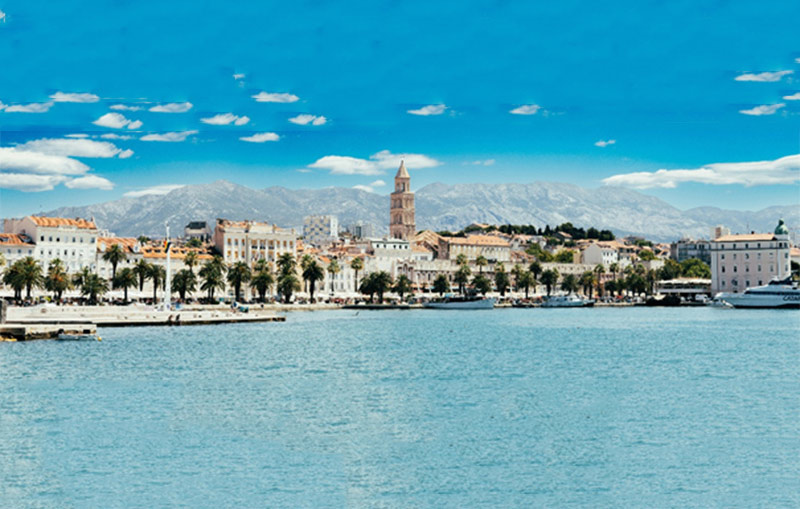PAP/RAC: Applying ICZM principles for a more sustainable management of their coastal areas

Source: Unsplash
“ Integrated Coastal Zone Management”, or ICZM (a protocol that went into effect in 2008), is a tool allowing Mediterranean countries to find a wholistic approach to the development of their coastline while preserving their environment. Lebanon is among those countries and is in the process of preparing a strategy and a draft law according to ICZM principles. What does ICZM stand for and how does it help countries reach their goals?
Daria Povh Škugor , director of the Priority Actions Programme Regional Activity Centre (PAP/RAC), operating under the United Nations Environmental Program (UNEP), and
Ante Ivcevic, program officer in the same organization, explain how applying ICZM principles help countries reach a more efficient coastal management.
What is the ICZM and what are its main components?
Integrated Coastal Zone Management is a dynamic planification process which promotes sustainable management and use of coastal areas. It spans multiple disciplines, taking into account environmental concerns, economic and societal drivers, recreational and cultural uses. All these factors are carefully studied and combined to create coastal strategies and plans, which help decision-makers and public powers make the best possible decisions for the future of their coasts.
ICZM relies on several principles, including the use of the ecosystems approach (analysing all components and interactions within an ecosystem before acting), a need for transparency, and the prevention and restoration of any coastal damage that may occur.
What is the role of PAP/RAC in applying ICZM principles in different countries?
PAP/RAC stands for Priority Actions Programme/Regional Activity Centre. It is part of the Mediterranean Action Plan (MAP), which operates under UNEP. Its mission is to support Mediterranean countries in implementing ICZM.
This help takes various forms. Its main activity consists in helping countries design ICZM strategies and plans, which can be national or focused on a specific region or coastal area. PAP/RAC also helps countries increase their own capacities (organising workshops to train new experts, sharing expertise from project to project) and raises awareness through international campaigns.
Which countries does ICZM apply to and why?
PAP/RAC’s work takes place in the framework of the Barcelona Convention, which is an international law instrument for the protection of the Mediterranean Sea. The ICZM Protocol is an additional instrument, adopted in 2008, specifically dedicated to the protection of Mediterranean coastal zones. All the countries which have signed and ratified this protocol (or are planning to) can benefit from PAP/RAC’s help in implementing ICZM. At present, the Protocol is in force in 12 Mediterranean countries, and in Lebanon since 2017.
Currently we are finalizing the ICZM regional coastal plans in Morocco and Montenegro, and an ICZM Strategy and Law in Lebanon.
What may limit the efficiency of the application of the ICZM principles and how to prevent it?
One of the main obstacles encountered in the application of IZCM is the lack of clear and appropriate governance. Indeed, it requires structural and organisational clarity: at the local, regional and national levels, all ICZM organs should have a clear understanding of what their role and mission entails, so that plans may be carried out as efficiently as possible. This also allows external actors, like stakeholders, to easily understand and reach ICZM organs when necessary.
Another obstacle is the need to properly consider all ICZM components in an integrated way, but due to constraints of practicality and feasibility, we have to work with priority topics. Priorities are defined by working closely with ministries, decision-makers, and various stakeholders.
What would be your recommendations for countries to improve their coastal management and help protect the sea?
In addition to effective governance, it is crucial that decision-makers and ICZM experts establish and maintain open dialogue with all stakeholders. The private sector, NGOs and civil society (fishermen and tourism operators, amongst many) are a highly valuable source of knowledge in local areas and are often willing to participate in consultations and workshops to share their insight. Their involvement in planification processes fosters trust and helps secure the future of IZCM projects. When developing the ICZM regional coastal plan for Morocco, for example, PAP/RAC consulted around 350 stakeholders during five workshops and conducted 20 in-depth interviews to gain as much insight as possible.
Finally, it is also important that data and lessons learned be shared between countries and between projects, through platforms and training programmes. Utilising this information can ensure maximum efficiency and as few obstacles as possible for new ICZM endeavours.
What would be your recommendations for Lebanon?
Lebanon, as one of the Mediterranean countries with a high population density and economic activity along its coastline, is facing significant challenges, including one of the highest coastal build-up ratios in the coastal zone. Furthermore, the country is facing one of the worst economic crises in modern history and is hosting one of the highest numbers of refugees per inhabitant in the world.
Developing a new ICZM strategy and a new draft law is a critical opportunity to align Lebanon’s priorities and establish the necessary mechanisms, tools and commitment for sustainable coastal practices.